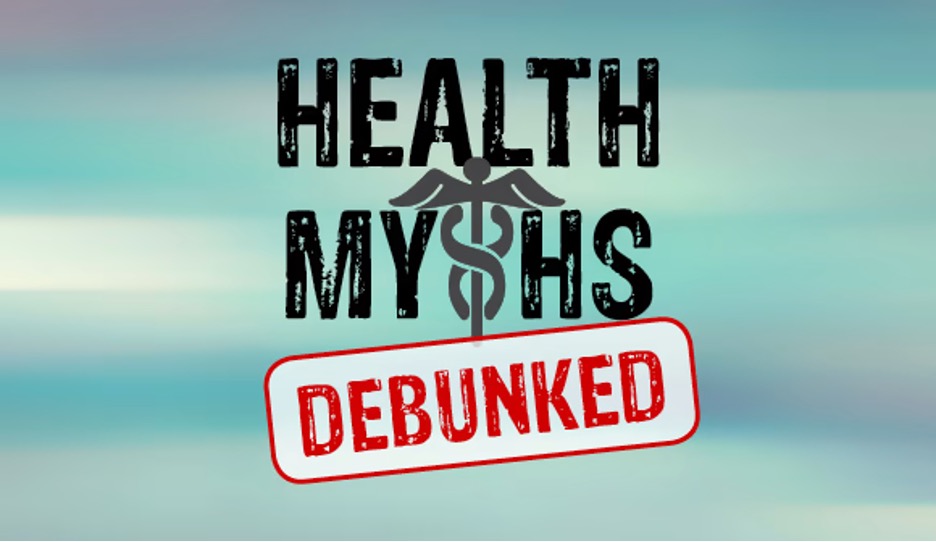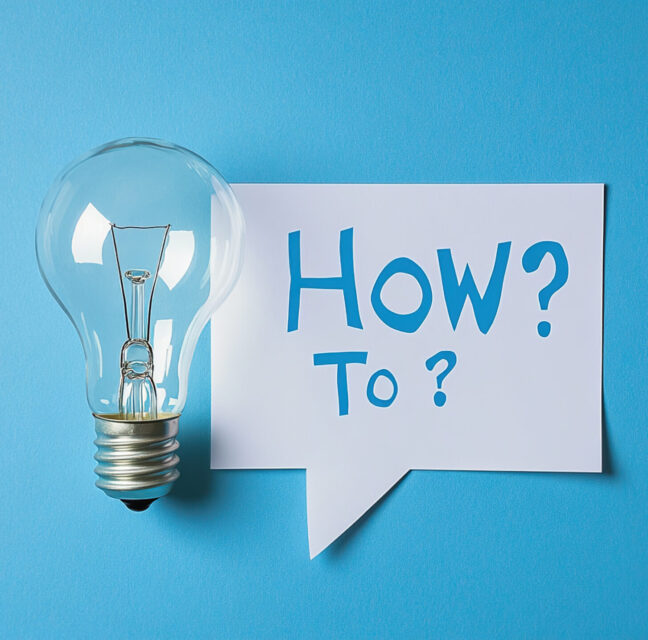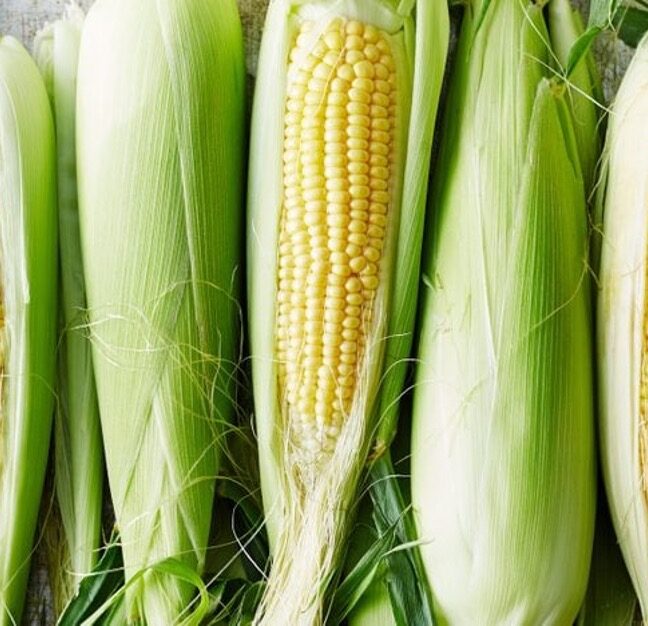
“Don’t swallow your gum, it’ll take seven years for your stomach to digest!” “Ah, just pick it up off the floor — five second rule!” Most of us grew up with wives’ tales such as these, and we probably believed them. However, as we’ve become older and wiser, we’ve found that many of them just aren’t true — and that there are many health concerns that we really should be getting checked out instead. Here’s a list of medical myths, both old and new, that have been debunked.
Carbs Make You Fat Carbs are not only not bad for you, but they’re essential to a healthy diet. Holland Matheson, a nutrition specialist, says, “Carbs are the essential nutrients our body needs to survive. It’s the first macronutrient we use to burn energy and survive. Cutting carbs or completely omitting your primary energy source is not sustainable, causing many people to rebound. Go for the good complex carbs, like whole grain pasta and oatmeal, rather than carbs like potato chips or ice cream.”
Fat Makes You Fat In fact, fat doesn’t make you fat, and the right kind of fat can be very good for weight maintenance and your heart. As nutritionist Holland Matheson says, “My motto has always been moderation. It’s what I always recommend to my clients and what I regularly practice.”
Vaccines Cause Autism Several years ago, two studies came out that said vaccines cause autism. Since then, both studies have been proven to be critically flawed and have been retracted. Several more recent credible studies have been published which do not find any correlation between vaccines and autism.
It Takes Seven Years To Digest Gum While your body can’t really digest gum, it also is smart enough to just move it through your system — i.e., you poop out gum with everything else.
Sleeping After A Concussion Is Dangerous If a person is awake and able to carry on a conversation, they are perfectly fine to sleep after a concussion. In fact, sleep is an important way for your brain to heal after a concussion. Just limit more vigorous activities and allow the brain to rest.
The Five-Second Rule The five-second rule suggests that you can safely eat food that’s fallen on the floor if you pick it up within five seconds. Believe it or not, researchers did a study on the five-second rule, and it is officially untrue — germs transfer before five seconds. Further findings from the study are that women use the rule more than men, and the rule is more likely to be invoked for cookies than for cauliflower.
Flossing Is Key To Dental Health. It’s not that flossing is bad for you, but it may be a bit overrated. You should probably still do it, but its benefits have not been as strongly proven as you might think, based on how sternly our moms have told us to floss.
Coffee Is Dehydrating While caffeine can have a mildly diuretic effect, there is no evidence that it increases the risk of dehydration. Water is still your best bet for staying hydrated, but there’s no need to be concerned about that afternoon cup of coffee throwing off your hydration.
You Use Only 10 Percent Of Your Brain This myth has been the subject of many intense conversations and even a Hollywood movie. While it’s fun one to discuss, this myth is “almost laughable,” according to Barry Gordon, a neurologist of the John Hopkins School of Medicine in Baltimore who made the statement in a Scientific American article. Turns out we use almost every part of our brain, and our brains are active almost all the time.
Milk Is Crucial To A Healthy Diet The U.S. Department of Agriculture tells adults that they should drink three cups of milk a day, mostly for calcium and vitamin D. However, studies show that there isn’t an association between drinking more milk and having fewer bone fractures. In fact, sometimes milk consumption can correspond to an increased risk of fractures or of death. While correlation and causation aren’t the same thing, the benefits aren’t proven and there may be risks.
Cheese Is Bad For Your Heart. You would think that since milk isn’t so good for you, cheese would be even worse. Counterintuitively, researchers at Penn State found that cheese uniquely has a positive effect on the cardiovascular system, despite its sodium content. This study only measured the short- term results of 55- to 60-year-olds eating cheese versus soy cheese and pretzels, but they are currently conducting a longer-term study. In the meantime, you can continue eating cheese snacks in moderation.
Humans Have Five Senses This myth has been disproven many times but is still repeated. You may have even heard it recently and believed it. But, what about time, balance, or temperature? Or, what about sensing pain or the sense that keeps us from walking into things all the time? There are easily more than five.
Carrots Help You See At Night Perhaps as a child you heard that eating carrots would help your night vision. Alas, this myth has been around for a while and was started by WWII propaganda. Eat all the carrots you’d like, but it’s not going help you see in the dark. That said, carrots are rich in beta-carotene, which the body converts to vitamin A — a nutrient essential for good vision.
You Can Scare Away Hiccups Hiccupping is, for most of us, an occasional annoyance. There are plenty of old wives’ tales about suggested remedies, but they don’t hold up under medical scrutiny. If you want to try one, fine; they’re pretty low risk. It probably won’t work, but can’t hurt, and the hiccups will probably go away on their own.
You Should Drink Eight Glasses Of Water A Day It’s a common saying that we need to drink eight glasses of water a day to stay healthy. The only problem is that there’s no scientific basis for that statement. You certainly don’t want to be dehydrated, but the best way to make sure you’re hydrated is to drink when you’re thirsty. The amount of water your body needs also depends on a variety of factors, including size, weight, activity level, and where you live.
Alcohol Increases Your Risk Of Heart Disease While alcohol isn’t known for being a huge promoter of health, red wine may have a beneficial effect on our hearts. The benefits haven’t been strongly proven enough that you should start drinking if you don’t already, but if you already do, maybe switch out a margarita for a glass of Cabernet Sauvignon occasionally, just to be safe.
Eating Turkey Will Make You Sleepy The amino acid tryptophan does play a role in sleep, but turkey has the same amount of tryptophan as chicken or ground beef. Pork and cheese have more tryptophan than turkey. We probably associate turkey with sleepiness because of heavy Thanksgiving meals — likely with a glass of wine or two. Old Diseases Such As Measles Are Gone Widespread epidemics such as whooping cough, measles, and polio may be considered relics of the past, but we still need to get vaccinated for them; otherwise, they can come back. For the vast majority of cases, the potential side effects of vaccines are minor — such as a sore arm or headache — and much easier on your body than potentially getting any of those terrible diseases that can and should stay in the past.
A Nightcap Will Help You Sleep While alcohol can help you fall asleep, a review of 27 studies found that alcohol reduces REM sleep, and furthermore, that more alcohol leads to worse REM sleep. Ultimately, even if it feels like it’s helping, it’s more disruptive and you won’t wake up feeling as rested. Try taking a warm bath instead.
Reading In Dim Light Hurts Your Eyesight While reading in dim light can cause temporary strain, most ophthalmologists agree that it’s unlikely to damage your eyesight permanently. Your eyes may be uncomfortable when you’re reading in dim light, but don’t be concerned about damaging them long term.






